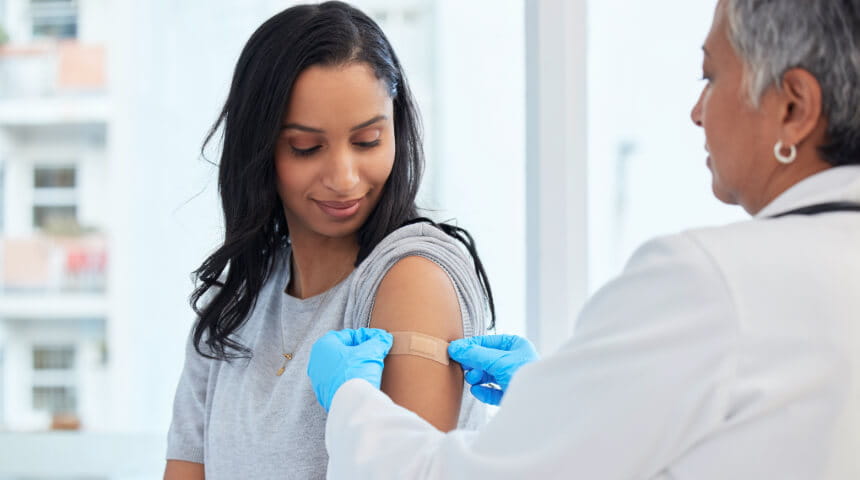It’s not often that we hear that cancer can be prevented. But that’s actually true to a large degree with colon cancer. That’s because early detection and lifestyle choices can make a big difference.
Here are five things you should know about colon cancer.
Colon Cancer Is Common.
Colorectal cancer is the second-leading cause of cancer-related deaths in the United States. It’s expected to cause about 52,900 deaths in 2025. And although the death rate has been dropping for older Americans for decades, it is climbing for adults younger than 55.
You May Not Notice Symptoms
Colon cancer usually develops slowly for 10 to 15 years. That’s why many people with colon cancer don’t have any symptoms at first.
When symptoms do appear, they may be confusing because they also could be symptoms of other more common ailments. Symptoms may include:
- Blood in your stool or bleeding from your rectum
- A change in the appearance of your stool
- Abdominal pain
- Changes in bowel habits
- Fatigue or weakness
- Anemia
- Unexplained weight loss
Because the disease can be silent, routine screening is critical, even if you feel fine.
Lifestyle Choices Can Lower Risk
Your everyday choices matter. To lower your risk of colorectal cancer, eat meals rich in whole grains, vegetables, fruits, beans, nuts and seeds. Limit red meat, processed meat and meat cooked at high temperatures.
Get regular physical activity. Aim for at least 30 minutes of moderate-intensity exercise most days of the week. You should also avoid tobacco and excessive alcohol. While no alcohol is best, women who choose to drink should have no more than one drink a day, and men no more than two drinks a day.
And watch your weight. Excess fat can create a low-oxygen environment, leading to chronic inflammation, which can increase your risk of cancer.
Screening Could Save Your Life
The American Cancer Society recommends screening for colon cancer begin at age 45 for most people with an average risk. If you have a family history of colorectal cancer or other risk factors you may need to start earlier.
The best way to screen for colorectal cancer is with a colonoscopy, a procedure in which a doctor uses a small, flexible tube with a light and small video camera on the end to look at the inside of your colon and rectum. It’s inserted through your anus and into the rectum and colon. Special instruments can be passed through the colonoscope to biopsy or remove any suspicious-looking areas, such as polyps, if needed. Not all polyps become cancer, but all colon cancer starts as a polyp. Colonoscopy is considered the gold standard in screening because polyps can be detected and removed during the same procedure.
Other screening options include:
- Visual exams: These tests look at the inside of the colon and rectum for any abnormal areas that might be cancer or polyps. A sigmoidoscopy is like a colonoscopy except it doesn’t examine your entire colon. A CT colonography (virtual colonoscopy) uses both x-rays and a CT scan to make 3D pictures of the inside of your colon and rectum. It does not involve sedation or a scope to be put into your rectum or colon, but it does require the same bowel preparation as a colonoscopy. A small catheter is placed into your rectum to fill the colon with air or carbon dioxide for clearer CT pictures.
- Stool-based tests: These tests look at your stool for possible signs of colorectal cancer or polyps, such as small amounts of blood or changes in the DNA or RNA from cells in the stool. The idea behind this is that blood vessels in larger colorectal polyps or in cancers are often fragile and easily damaged when stool passes through. The damaged vessels usually bleed into the colon or rectum, but only rarely is there enough blood for it to be seen by the naked eye in the stool. Stool-based tests are not invasive and are easier to have done than a colonoscopy because the sample can be collected at home and mailed to a lab. They need to be done more often, however.
- Blood-based tests: These tests check your blood for signs of colorectal cancer or pre-cancerous polyps, but they are more accurate at detecting the cancer. A sample of blood is collected in a clinic and sent to a lab for testing.
If you choose to be screened with a test other than colonoscopy, any abnormal test result should be followed up with a timely colonoscopy.
New Treatments Are Effective
Colon cancer is serious, but it’s also one of the most treatable cancers when detected early. Today’s treatments are more effective and less invasive than ever before. From robotic and minimally invasive surgery to targeted therapy drugs and comprehensive follow-up care, patients have many new treatment options that can give them the best possible outcomes.
Choose to Stay in Touch
Sign up to receive the latest health news and trends, wellness & prevention tips, and much more from Orlando Health.
Sign Up





